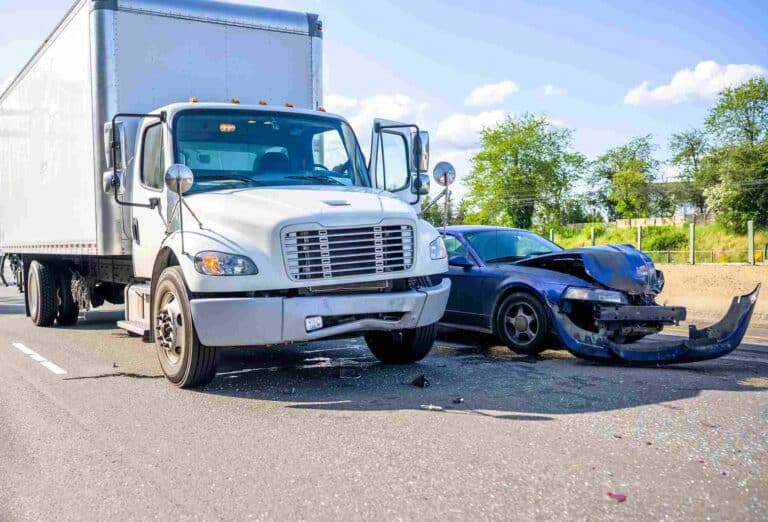Following a car accident, the victims should first seek medical attention before they can even hire a car accident lawyer. As a victim, you should make a point of seeing the right physician right away regardless of the type and nature of injuries you sustained.
This is because some car accident injuries may not produce any visible symptoms. In such a case, delaying treatment will only cause the injuries to worsen. Additionally, delaying treatment may also affect your compensation claim.
A visit to a doctor after a car accident helps you understand the extent of your injuries and document your losses. To better your chances of getting fair compensation, this guide covers the seven questions you should ask the doctor after an accident.
What Questions Should I Ask My Doctor After a Car Accident?
A visit to a doctor after a car accident in Long Island can serve two important purposes:
- Help you understand your injuries and treat them appropriately
- Help you document your losses and damages as well as gather sufficient evidence for the subsequent car accident claim case
To make the most out of your visit, these are some of the important questions you should ask your doctor after a car accident:
What is the Nature of the Injury I Sustained?
First, you should seek to understand the nature and extent of the injuries you sustained. Ask the doctor what parts of your body are injured. You could also have them explain how severe each of the injuries is. If your back was injured in the accident, ask for specifics like which vertebrae numbers were affected.
If possible, it is also advisable to have the doctor document the same in your records. Since some injuries may not show symptoms right away, you may need to schedule multiple follow-up appointments with the doctor.
What Caused My Injuries?
Did you know that pre-existing conditions can affect your injury claim? As such, your injury claim needs to prove that actions by the liable party led to your injuries. In the legal world, this is referred to as proximate causation.
The defendant in your case may argue that your injuries are a result of a pre-existing condition. To refute such a claim, you need to present a medical practitioner who can testify to the cause of the injuries.
Ask the doctor what they think caused your injury. For instance, some injuries may have been caused by contact with the dashboard or steering wheel during the accident. Your doctor’s input on what is likely to have caused your injuries can aid your personal injury case.
When Can I Return to Work?
Injuries sustained by victims during a car accident differ significantly. However, doctors tend to know the average time it takes to recover from different injury types. For instance, the clinical average recovery for most soft tissue injuries is just a few weeks.
That said, broken bones and whiplash can take months or even years to heal, depending on the location of the injury. Have the doctor give you an average recovery period for your injuries. You should particularly seek to know the following:
Should You Stay Off Work While You Recover?
Depending on your job type, you may be required to be off work while you recover from the injuries you sustained in a car accident. If so, the doctor should write a note to bring this to the attention of your employer.
Doctors will only recommend you go back to work when you are ready and stable enough. If you need to stay off work for a certain period, you could receive compensation for lost wages during the recovery period.
To support the claim, your doctor’s opinion may be used as evidence of how long you’ll be out of work.
How Long Are You Likely to Be in Pain?
Well, physical injuries hurt. As your attorney will tell you, you have a right to compensation for this pain. At some point, your car accident lawyer and the jury will want to assign a dollar value to your pain.
To do that, they will need to know the pain you were in and for how long. Be sure to ask your doctor how long the pain is likely to last.
Are There Any Future Complications I Should Be Aware Of?
Some car accident injuries do not quite heal, however well they are treated. As such, you need to find out whether your injuries are likely to have long-term health effects. If for some reason your injury has a poor prognosis, it could lead to possible complications, problems, and outcomes.
To begin with, ask the doctor whether your prognosis is uncertain or clear. If uncertain, have the doctor explain the kind of complications you are likely to develop in the future. For instance, your doctor may predict that your injury symptoms will persist for years to come.
This will, in turn, affect your relationships, work, and goals. It will also give you a better idea of future care and medical expenses. Since you are also entitled to compensation for your medical bills, this question will help Long Island car accident lawyers build a comprehensive case.
May I Have Copies of My Medical Records?
The verdict and settlement in a car accident claim case mainly depend on how the facts and evidence are presented. Medical documentation is one of the best pieces of evidence that can help you win a personal injury lawsuit following an accident.
Some accident injury doctors will be glad to give you copies of your medical record if you ask them verbally. Even so, it is advisable to send them a formal request—your Long Island car accident lawyer may also ask for these documents on your behalf.
Using your medical record, your lawyer can assess your injuries and figure out the compensation you deserve. They could also use it as evidence to strengthen your claim. Chances are that the defendant’s lawyers will want to see this document as well.
What is the Most Appropriate Medication Plan for My Injuries?
First things first, you need to convince the jury hearing your case that you did—or are doing—your part toward full recovery. In this regard, understanding your treatment plan and following it increases your chances of getting full compensation.
The jury will only be inclined to award you compensation for future medical bills if they think that you are willing to follow through with the treatment plan. This is why one of the 7 questions to ask your doctor after a car accident should be about the best treatment plan.
You should particularly seek to understand the following:
What Prescription Medications Should I Take?
Depending on the nature and severity of your injuries and symptoms, your doctor will prescribe the most appropriate medications. For instance, the doctor may prescribe the most appropriate pain medication depending on the level of pain you are experiencing.
Anti-inflammatory drugs and steroids are other commonly prescribed medications after a car accident. For burn injuries and deep lacerations, your doctor is likely to prescribe antibiotics as well. Have the doctor explain your prescription clearly, and if possible write it down for easier understanding.
Can I Use Over-the-Counter (OTC) Medications?
In addition to prescription drugs, your doctor may recommend that you take OTC medications as well. Some of the over-the-counter drugs you may be advised to take after a car accident include ibuprofen and acetaminophen.
However, you should specifically ask your doctor whether you should take any OTC drugs alongside the prescription medications. If so, have the doctor tell you which OTC drugs you can take and how they should be administered.
If your doctor does not recommend the use of OTC drugs to treat your car accident injuries, you should not use them. Not only can they interact with your prescription drugs but taking OTC drugs without the doctor’s recommendation may also affect your claim lawsuit.
Do I Need to Seek Specialized Treatment?
Doctors tend to specialize in a specific field of medicine—hence focus on treating a specific type of ailment or injury. Similarly, some injuries you may sustain in a car crash require specialized treatment. If this happens to be the case, your physician will refer you to the right specialist for your type of injury.
For instance, if you suffered a brain injury in the accident, you are likely to be referred to a neurologist. Remember to ask your primary care doctor whether your injuries need to be treated by a specialized doctor.
As some of the best Long Island car accident lawyers, we understand that such information may come in handy during an insurance claim lawsuit. This question allows your NYC accident attorney to factor future physical therapy expenses into your compensation.
How Can a Long Island Car Accident Lawyer Help Me?
If your accident was caused by the negligence of another person, you are eligible for compensation for the losses and damages you sustained. However, the at-fault driver’s insurer will likely try to undervalue or contest your claim.
When that happens, you will need an experienced car accident lawyer to advocate for you. To get the compensation you deserve, your lawyer will need evidence to support the claim. In this regard, a visit to a doctor after an accident can yield a considerable amount of evidence, if you remember to ask the right questions.
In addition to the 7 questions you need to ask your doctor after a car accident, car accident lawyers can also identify gaps in your medical record. Contact us today for a free car accident lawyer consultation and we’ll help you ask the right questions—hence build an airtight claim.





